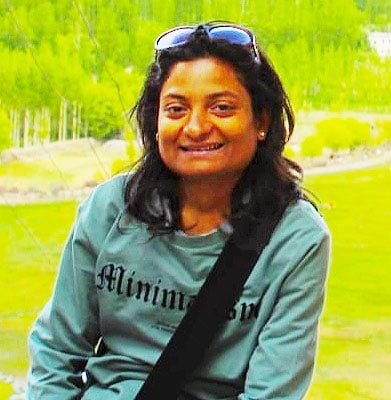Delhi HC sets aside discharge of Sharjeel Imam, 8 others in Jamia violence case
The Delhi high court has charged Sharjeel Imam, Safoora Zargar, Asif Iqbal Tanha and others under rioting unlawful assembly and other offences.
The Delhi high court on Tuesday set aside the trial court’s discharge of Sharjeel Imam, Safoora Zargar, Asif Iqbal Tanha and six others in the Jamia violence case of 2019 while charging them under rioting, unlawful assembly and other offences.

Justice Swarna Kanta Sharma in her judgment said that prima facie, as seen in videos, the accused were in the first line of the mob and they were raising slogans of “Delhi police murdabad”, adding that they consciously chose to be a part of the unlawful assembly.
The court said that accused were carrying dandas in their hands and climbed the barricades to march towards Parliament despite several warnings by the police.
The judge, however, discharged the accused of some of the sections.
A detailed copy of the judgement is awaited.
Also Read: Delhi police to scrutinise footage of protest at India mission in UK
The first information report (FIR) in the case was lodged after violence broke out near Jamia Milia Islamia University on December 13, 2019 when a gathering of approximately 700-800 people were protesting against the Citizenship Amendment Act (CAA). The police indicted 12 people, including Imam, Tanha and Zargar, under various sections of the Indian Penal Code (IPC) and the Prevention of Damage to Public Property Act.
The trial court, on February 4, discharged 11 accused, including Imam, Zargar and Tanha, challenging which the Delhi police approached the high court. The trial court, however, ordered framing of charges against one of the accused, Mohammad Ilyas.
The sessions court, while exonerating the accused, said that the accused were made “scapegoats” by police and that dissent has to be encouraged, not stifled. The trial court said there were admittedly scores of protesters at the site and some anti-social elements within the crowd could have created an environment of disruption and havoc.
The judge highlighted that the police and investigating agencies need to know the difference between dissent and insurrection, pointing that though insurrection must be “quelled indisputably”, dissent should be given space as it is reflective of something which pricks a citizen’s conscience.
In its plea, the Delhi police have specifically listed remarks of the trial court that criticised them for initiating the prosecution against them in a “perfunctory and cavalier fashion”.
Additional sessions judge Arul Varma remarked that the right to dissent was part of fundamental protections under the Constitution, adding that such police actions are detrimental to the liberty of the citizens who exercise their right to protest peacefully.
Arguing against the trial court judgment, additional solicitor general (ASG) Sanjay Jain told the court that the trial court had not considered the third charge sheet which contained the statements of the injured police officials.
He contended that the trial court judge had conducted a “mini trial at the stage of framing of charges” and “overstepped its jurisdiction” by passing disparaging observations.
The ASG said that they have ten video clips of the incident in which seven accused have been identified from two clips. With respect to the rest of the accused, ASG Jain said that they have been named by the witnesses and the injured policemen.
Opposing the submissions, senior advocate Rebecca John for Zargar, told the court that her client could not be identified by the police even by seeing in the video footage of the incident as her face was covered.
She said that the call detail records of Zargar would of course show that she was present in the area as she was a student of the University and her house was also in close vicinity.
Appearing for Imam, his counsel Ahmad Ibrahim argued that his client’s speech in Aligarh, where he had said that his spectacles had broken during the violence, would show that he was the victim of violence and had no active role to play in its culmination”.
The counsel also told the court that the violence started in the afternoon at 3pm and Imam left the place of occurrence at 3.51pm after his spectacles were broken.
In its plea, the Delhi police contended that the trial court erred not only in holding a “mini trial” but also recorded “perverse findings” contrary to the record.
It said that the trial court should have merely sifted through the evidence in order to find out whether or not there was sufficient ground for proceeding against the accused/respondents.




